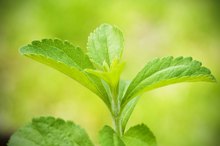What Are the Causes of Dark Green Feces?
This may seem like a gross topic, but there are several factors can cause fecal matter or poop to turn green. Green bowel movements can be attributed to the foods we eat, the medications we take, or a serious digestive disorder. It should be noted that any change in stool color should be reported to a physician and investigated.
Food and Diet Can Make Poop Turn Green
Many foods that we routinely consume can cause green feces. It should be noted that these foods should only cause change in stool color if eaten in large quantities. Green vegetables such as lettuce, peas and cabbage are example of foods that can cause green stools if eaten in large quantities. Foods that are artificially colored such as sherbet, Jello and Popsicles can also change stool color. Black licorice, if eaten in large quantities, can affect stool color. In addition, foods that are rich in iron such as beans and red meat can also contribute to green feces.
- Many foods that we routinely consume can cause green feces.
- Green vegetables such as lettuce, peas and cabbage are example of foods that can cause green stools if eaten in large quantities.
Some Medications Can Cause Green Stools
What Causes Green Stools in Kids?
Learn More
Several medications and vitamin supplements can also lead to green stools. Individuals who routinely take laxatives, iron supplements, medicines and vitamins containing cholorophyll, and any medication or vitamin that contain fructose can experience green bowel movements. Stool color should return to normal once use of these products is discontinued.
Physiological Issues Such as Crohn's Disease and Other Digestive Disorders
Green bowel movements are directly related to colonic transit time 2. This simply means the time it takes for food to be excreted from the body once it enters the intestine. Food is green when it enters the intestine, as it travels through the intestine, it absorbs fats and vitamins which give the stool its common brown color. If food travels through the intestine too rapidly, it fails to absorb these fats and vitamins and maintains its green color. Irritable bowel syndrome, Crohn's disease, and colitis are some digestive disorders in which green feces is common.
- Green bowel movements are directly related to colonic transit time 2.
- Food is green when it enters the intestine, as it travels through the intestine, it absorbs fats and vitamins which give the stool its common brown color.
Related Articles
References
- GreenBowelMovement: Green Bowel Movement
- HealthHype: Green Bowel Movement-What are the Causes?
- Tan CK, Chao CM, Lai CC. Green feces. QJM. 2013;106(3):287. doi:10.1093/qjmed/hcr271
- Levy J. My Tummy Hurts, A Complete Guide to Understanding and Treating Your Child's Stomachaches. Simon and Schuster; 2004.
- InformedHealth.org. Infectious diarrhea: Traveler's diarrhea. Cologne, Germany: Institute for Quality and Efficiency in Health Care (IQWiG); Updated May 4, 2016.
- den Hertog J, van Leengoed E, Kolk F, et al. The Defecation Pattern of Healthy Term Infants up to the Age of 3 Months. Arch Dis Child Fetal Neonatal Ed. 2012;97:F465-70. doi:10.1136/archdischild-2011-300539
- den Hertog J, van Leengoed E, Kolk F, et al. "The Defecation Pattern of Healthy Term Infants up to the Age of 3 Months." Arch Dis Child Fetal Neonatal Ed. 2012 Nov;97:F465-70. doi: 10.1136/archdischild-2011-300539
- Picco MF. "Stool Color: When to Worry." Mayo Clinic. 6 Oct 2016.
- Christensen B. "Discoloration, feces." Medscape. 3 Dec 2014.
Writer Bio
Robert Shifko has more than 17 years' experience in the health care industry. Throughout his career, he has gained experience in pharmacologic research, clinical nuclear medicine, and most recently radiation health physics. He has obtained several certifications in nuclear medicine, epidemiology, biostatistics and as a medical radiation safety officer. He has always supported LIVESTRONG.









